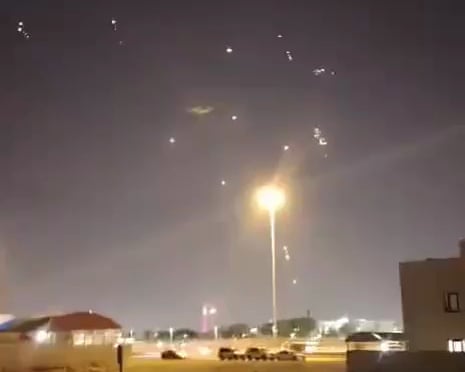RwandAir has suspended its flights to and from the Middle East following a sudden closure of Qatar’s airspace in the wake of a major geopolitical and military incident.
The airline announced the cancellation of flights WB300 and WB303 to and from Doha on June 23 and 24, 2025, as well as all Dubai-bound services, citing safety concerns amid escalating regional tensions.
“Due to the closure of Qatar’s airspace… flights to and from Doha have been cancelled,” the airline stated. “In light of the evolving situation and for the safety of our passengers and crew, flights to and from Dubai have also been cancelled.”
Affected travelers are being offered the option to reschedule their trips.
The airspace closure came hours after Iran launched a missile attack targeting the U.S.-operated Al Udeid Air Base—the largest American military facility in the Middle East—located just outside Doha.
The strike was in retaliation for U.S. airstrikes on Iranian nuclear facilities over the weekend.
According to military sources, 6 to 14 ballistic missiles were fired by Iran, but all were intercepted by a joint U.S.-Qatari air defense system, including the Patriot PAC-3. No casualties or damages were reported.
Qatar condemned the attack as a “flagrant violation” of its sovereignty and international law and subsequently closed its airspace as a security precaution.
The Qatari Ministry of Foreign Affairs confirmed the decision, stating it was necessary to protect civilian lives and national infrastructure amid heightened risk.
Qatar Airways also announced the temporary suspension of its flight operations, confirming that all air traffic to and from the country has been halted until further notice.
“We are working closely with government stakeholders and the relevant authorities to support any passengers that have been impacted,” the airline said, pledging to resume services once the airspace reopens.
While the missile strike caused no direct harm, the broader implications were swift and far-reaching. U.S. and U.K. embassies in Doha issued shelter-in-place advisories.
The Qatari Ministry of Education postponed all national exams scheduled for June 24, and the U.S. Embassy in Doha, closed during the incident, is set to reopen with heightened security.
Iran had reportedly issued advance warnings of the strike to both Qatar and the United States via diplomatic channels. U.S. President Donald Trump dismissed the attack as “very weak,” emphasizing that 13 of 14 missiles were intercepted, and one veered off harmlessly.
The missile strike is part of a growing regional escalation following U.S. attacks on Iranian nuclear facilities, as tensions between Iran, the U.S., and Israel intensify. Iran’s Supreme Leader, Ayatollah Ali Khamenei, described the strike as a defensive act, declaring Iran would not surrender to Western pressure.
Neighboring states including Egypt, Lebanon, and Oman expressed solidarity with Qatar and called for immediate de-escalation. Bahrain also enacted a temporary airspace closure. Oil companies began evacuating staff from facilities in Iraq, fearing further instability.
Unverified posts circulating online suggested naval and submarine maneuvers in the Gulf, but these claims remain unsupported by official reports.
The closure of Qatari airspace and resulting flight suspensions underline the strategic vulnerability of global aviation to regional conflict.
For airlines like RwandAir, which rely on the Middle East for critical transit routes, the disruption is both a logistical and economic blow.
Passengers are urged to contact their travel agents or the RwandAir reservation team at reservations@rwandair.com for assistance and updates.
